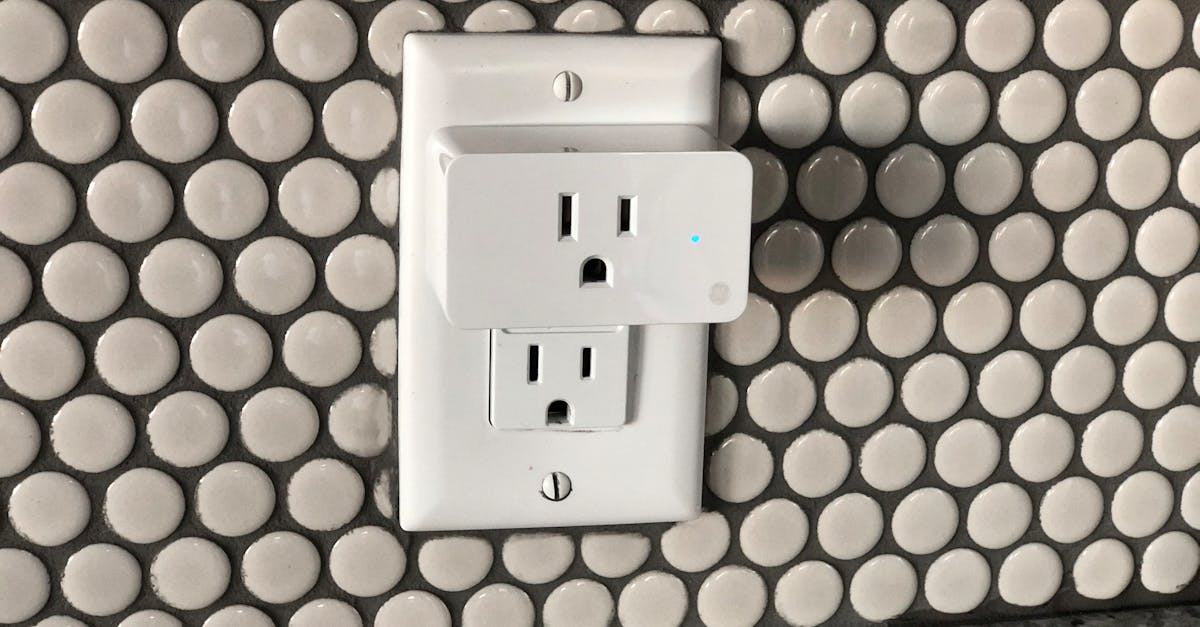In a world where everything from toasters to thermostats is getting a smart upgrade, the Internet of Things (IoT) is leading the charge in energy efficiency. Imagine a home that knows when you’re cold and adjusts the thermostat before you even think to grab a sweater. That’s not just a dream; it’s the power of IoT energy in action.
Table of Contents
ToggleOverview of IoT Energy
IoT energy encompasses devices and systems that optimize energy consumption through interconnected technology. Smart meters measure energy usage in real time, allowing households and businesses to adjust their consumption patterns. Real-time data from IoT devices enables efficient energy allocation, helping users identify high-usage periods.
Connected appliances enhance energy efficiency by communicating with each other. For instance, smart refrigerators can coordinate with home solar panels to utilize energy when it’s most abundant. This coordination leads to significant cost savings and reduced environmental impact. Energy providers also benefit through improved demand response strategies, which lead to a stable grid.
Buildings equipped with IoT sensors monitor energy levels continuously. These sensors detect anomalies and provide insights on potential energy waste. Automating lighting and HVAC systems based on occupancy further contributes to energy reduction.
The integration of IoT technology in energy management often includes analytics platforms. These platforms analyze historical data and generate forecasts to guide future energy use. Users gain actionable insights that promote more sustainable behaviors.
Governments and organizations promote IoT energy initiatives to support clean energy goals. Incentives for smart technology adoption encourage consumers to embrace energy-efficient solutions. Overall, IoT energy fosters a more connected and efficient approach to power consumption, enhancing comfort while reducing costs and emissions.
Key Technologies in IoT Energy
IoT energy relies on various technologies that enhance efficiency and sustainability. These key technologies play a vital role in optimizing energy consumption.
Sensors and Actuators
Sensors monitor environmental conditions like temperature and light levels. They collect data that helps optimize energy usage in real time. Actuators execute adjustments in response to sensor data, controlling devices such as HVAC systems and lighting. Together, sensors and actuators create a feedback loop that fosters energy conservation. Smart thermostats exemplify this synergy, adjusting heating or cooling based on occupancy patterns. Anomalies can trigger immediate corrective actions, enhancing reliability and reducing energy wastage.
Communication Protocols
Communication protocols facilitate seamless interaction among devices. Popular protocols, such as MQTT and CoAP, allow devices to efficiently transmit data. These protocols ensure low latency and minimal power consumption, crucial for battery-operated devices. Interoperability becomes essential as diverse devices from different manufacturers connect within the same network. Robust communication also enables remote monitoring and control of energy systems. Protocols like Zigbee and Z-Wave promote secure data exchanges, protecting user information while enhancing the smart energy ecosystem.
Applications of IoT Energy
IoT energy applications encompass various technologies that significantly enhance energy management.
Smart Grids
Smart grids integrate IoT energy technology to optimize electrical distribution. These systems enable real-time monitoring of energy flow, ensuring efficient usage. Sensors and smart meters collect data on consumption patterns, helping utilities manage peak demand effectively. Usage forecasts rely on this data, allowing for better resource allocation. Automation facilitates rapid responses to outages, minimizing downtime. Enhanced communication among devices improves overall grid reliability. Smart grids ultimately contribute to sustainability by incorporating renewable energy sources, reducing dependence on fossil fuels.
Energy Management Systems
Energy management systems leverage IoT to streamline energy consumption across facilities. Sensors track real-time energy usage, pinpointing inefficiencies. Analytics platforms analyze this data, offering actionable insights for optimization. With remote monitoring capabilities, users can adjust settings for HVAC, lighting, and other systems from anywhere. Improved decision-making is a direct result of precise data collection. Business operations benefit from decreased energy costs and increased awareness of usage trends. Overall, energy management systems actively promote sustainable practices within organizations, driving ongoing reductions in waste.
Benefits of IoT Energy Solutions
IoT energy solutions offer numerous advantages. These benefits significantly enhance both efficiency and cost-effectiveness.
Increased Efficiency
Increased efficiency represents a critical advantage of IoT energy solutions. Smart devices continuously monitor energy use and adjust settings in real-time. The ability to optimize power consumption leads to reduced waste and better resource management. For example, automated thermostats can lower heating or cooling when a space is unoccupied, ensuring energy savings. Furthermore, IoT sensors in buildings detect occupancy levels, allowing systems like lighting and HVAC to operate only when necessary. This proactive approach minimizes energy waste and contributes to a more sustainable environment, ultimately leading to the realization of long-term energy goals.
Cost Savings
Cost savings emerge as a compelling benefit of adopting IoT energy solutions. Users gain direct access to real-time data through smart meters, empowering them to make informed decisions about their energy patterns. Adjustments based on this data can lead to lower utility bills, reflecting immediate financial benefits. For example, smart appliances can schedule energy-intensive tasks during off-peak hours when electricity rates drop. Additionally, implementing energy management systems reduces operational costs by identifying inefficiencies and streamlining processes. These savings not only enhance personal finances but also satisfy corporate sustainability initiatives while supporting broader clean energy goals.
Challenges and Limitations
Navigating the realm of IoT energy involves addressing specific challenges and limitations that impact its effectiveness and adoption.
Security Concerns
Security vulnerabilities pose significant risks in IoT energy systems. Devices often connect to the internet, making them susceptible to hacking or unauthorized access. Attackers can exploit these vulnerabilities to disrupt energy management, leading to potential outages. Moreover, compromised devices may also leak sensitive data, leading to further security breaches. Ensuring robust encryption and security protocols can mitigate these risks, but challenges in maintaining device updates often persist. Manufacturers need to prioritize device security during the design phase to minimize threats.
Data Privacy Issues
Data privacy issues arise from the extensive data collection inherent in IoT energy systems. Users generate vast amounts of data through smart devices, raising concerns about how this information is used and stored. Regulatory frameworks may not adequately safeguard individual privacy, leaving users vulnerable to misuse. Data breaches can occur if companies do not implement stringent protection measures. Transparency about data collection methods is crucial for building user trust. Furthermore, organizations must comply with applicable data protection regulations to ensure responsible data management.
Conclusion
The rise of IoT energy represents a pivotal shift in how energy is consumed and managed. As smart devices continue to evolve they offer unprecedented opportunities for enhancing efficiency and reducing costs. The integration of real-time data and automated systems empowers users to make informed decisions about their energy use.
While challenges like security and data privacy persist the benefits of IoT energy solutions are undeniable. By embracing these technologies individuals and organizations can contribute to a more sustainable future. The ongoing evolution of IoT energy systems promises to reshape the energy landscape fostering a smarter and more efficient world.



